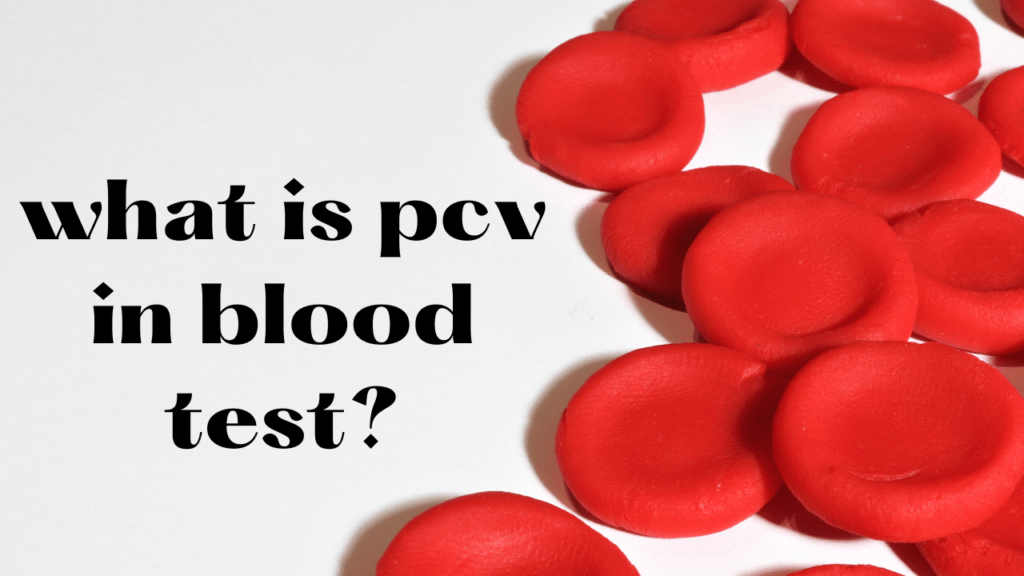PCV stands for packed cell volume. It is a measure of the volume of red blood cells in a sample of blood.

The PCV is expressed as a percentage of the total volume of blood. A high PCV may indicate that a person is dehydrated or has anemia.
A low PCV may indicate that a person has a condition called polycythemia, in which there are too many red blood cells in the blood.
The PCV is typically measured as part of a complete blood count (CBC) test, which is a routine blood test used to
When pcv increase?
Several medical conditions and factors can lead to an increase in PCV (Packed Cell Volume) or hematocrit. These conditions can include:
- Dehydration: Reduced plasma volume due to insufficient fluid intake can cause a relative increase in red blood cells, leading to higher PCV.
- Chronic Hypoxia: Conditions where the body is exposed to low oxygen levels for an extended period, such as chronic obstructive pulmonary disease (COPD) or living at high altitudes.
- Polycythemia Vera: This is a rare blood disorder where the bone marrow produces too many red blood cells, white blood cells, and platelets, leading to elevated PCV.
- Smoking: Smoking can lead to chronic low oxygen levels in the blood, which can stimulate the production of red blood cells.
- Certain Medications: Some drugs, such as erythropoietin-stimulating agents, may increase red blood cell production and, subsequently, PCV.
- Congenital Heart Disease: Conditions that reduce the oxygen content in the blood, like congenital heart defects, can lead to an increase in PCV.
- Kidney Disorders: Some kidney diseases can affect the production of erythropoietin, a hormone that regulates red blood cell production, leading to increased PCV.
Here is the video of pcv blood test.
When pcv decrease ?
Several medical conditions and factors can lead to a decrease in PCV (Packed Cell Volume) or hematocrit. These conditions can include:
- Anemia: Anemia is a condition where there is a reduced number of red blood cells or a lower amount of hemoglobin in the blood, leading to a decrease in PCV.
- Blood Loss: Acute or chronic blood loss, such as from injury, gastrointestinal bleeding, or heavy menstrual periods, can cause a decrease in PCV.
- Nutritional Deficiencies: Inadequate intake of nutrients like iron, vitamin B12, or folic acid can lead to a decrease in the production of red blood cells, causing a decrease in PCV.
- Chronic Kidney Disease: Kidney disorders can affect the production of erythropoietin, a hormone necessary for red blood cell production, leading to decreased PCV.
- Bone Marrow Disorders: Conditions like myelodysplastic syndrome or aplastic anemia can impair the bone marrow’s ability to produce red blood cells.
- Chronic Inflammation: Conditions associated with chronic inflammation, such as rheumatoid arthritis or chronic infections, can interfere with red blood cell production, leading to a decrease in PCV.
- Hemolysis: Conditions where red blood cells are prematurely destroyed, such as in hemolytic anemias, can cause a decrease in PCV.